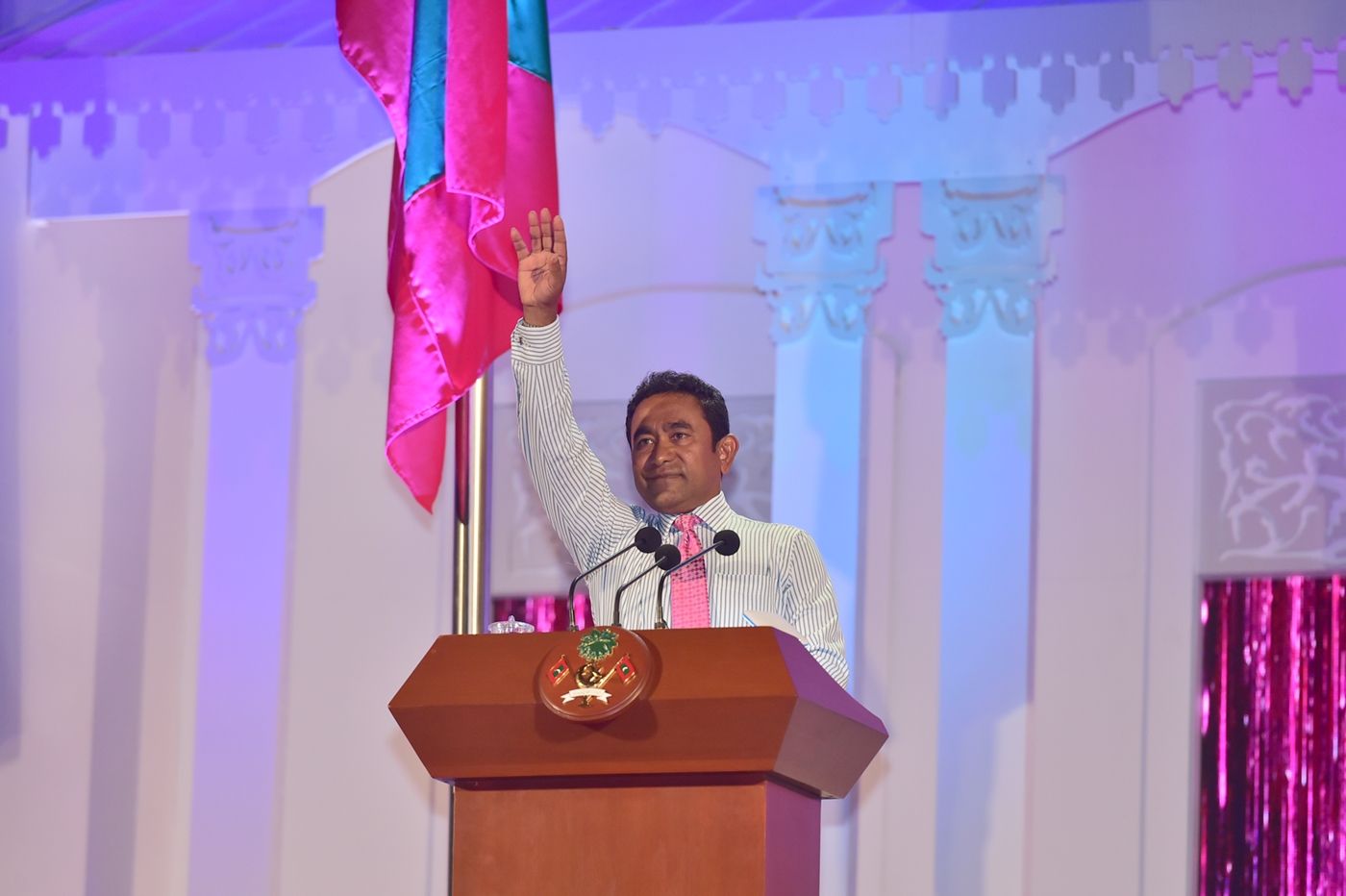Ministries slapped with RTI requests to fact-check president
Yameen rattled off figures and challenged “political leaders who say they do not see development” at the November 18 rally marking the four-year anniversary of his government and the Maldives Independent is seeking to fact-check his claims.

23 Nov 2017, 09:00
Six ministries have been sent right to information requests after refusing to hand over data to the Maldives Independent, which wanted to fact-check claims made by President Abdulla Yameen.
Yameen rattled off figures and challenged “political leaders who say they do not see development” at the November 17 rally marking the four-year anniversary of his government.
His administration has completed 1,800 projects at a cost of MVR20 billion (US$1.2 billion), he said, amounting to nine projects for each inhabited island including 24-hour electricity for all islands and sewerage systems in 37 islands.
Clean water projects have been completed in 135 islands, Yameen added, pledging to bring down household water bills in the atolls to the same level as Malé. Nine out of 10 households nationwide would see a 57 percent reduction.
Become a member
Get full access to our archive and personalise your experience.
Already a member?
Discussion
No comments yet. Be the first to share your thoughts!
No comments yet. Be the first to join the conversation!
Join the Conversation
Sign in to share your thoughts under an alias and take part in the discussion. Independent journalism thrives on open, respectful debate — your voice matters.




